Screenwriter Dustin Lance Black, married to Olympic medalist Tom Daley, was acquitted of assault after a judge dismissed the case stemming from an altercation at a Soho night club.
The Oscar-winner was accused of assault by BBC presenter Teddy Edwardes, who claimed that Black twisted her wrist while at Freedom nightclub in August 2022. Edwardes then retaliated by punching Black in the head and was given a police caution following the incident.
District Judge Louisa Cieciora, who was presiding over the trial at Westminster Magistrates Court in the UK, dismissed the case citing inconsistencies and said that based on the evidence she could “not properly convict” Black, according to Variety.
“This is a moment of exoneration – this case has flown in the face of everything I am and I am grateful to the judge for exonerating me,” Black told the outlet outside the courtroom.
How did we get here? Allow us to break it down.
Who is Dustin Lance Black?
Black is an out gay screenwriter who took home an Oscar for best original screenplay for Gus Van Sant feature Milk in 2008. Most recently he wrote the script for Netflix’s biopic Rustin starring Coleman Domingo. He married British Olympic diver Tom Daley back in 2017 and the couple have a five-year-old son named Robbie as well as a second son, who was born earlier this year. Daley was set to give evidence in the trial, but was saved having to take the stand when the judge dismissed the case.
What did Teddy Edwardes accuse Black of?
Edwardes, star of The Big Proud Party Agency, claimed that while at the Freedom nightclub in Soho, London Black grabbed her wrist and twisted it, intentionally causing her drink to be spilled all over her. She then punched Black in the head.
Why did the judge dismiss the case?
Edwardes gave evidence from behind a curtain, as part of courtroom accommodations for victims, but Judge Cieciora said she wasn’t “consistent” in her evidence. The judge also said that the CCTV footage did not back up Edwardes’ story that Black had poured a drink over Edwardes and that she had lied to police about seeing the CCTV footage before giving them a statement.
“She said in her evidence today she could not remember a wrist grab clearly,” Cieciroa said. “I found that to be an odd statement given she had made public statements on social media and to the police this is what happened.”
How did social media play a role in the case?
During cross-examination, Black’s lawyer questioned Edwardes about her social media posts and the TV personality admitted that she regretted her actions. Black’s lawyer then pointed out that after the incident occurred she posted a meme of a tattoo that reads “No Ragrats.” Edwardes also posted on social media that she had “chosen violence," but when questioned about it she said that social media is “not real life." The district judge didn’t find this explanation to be “persuasive.”














































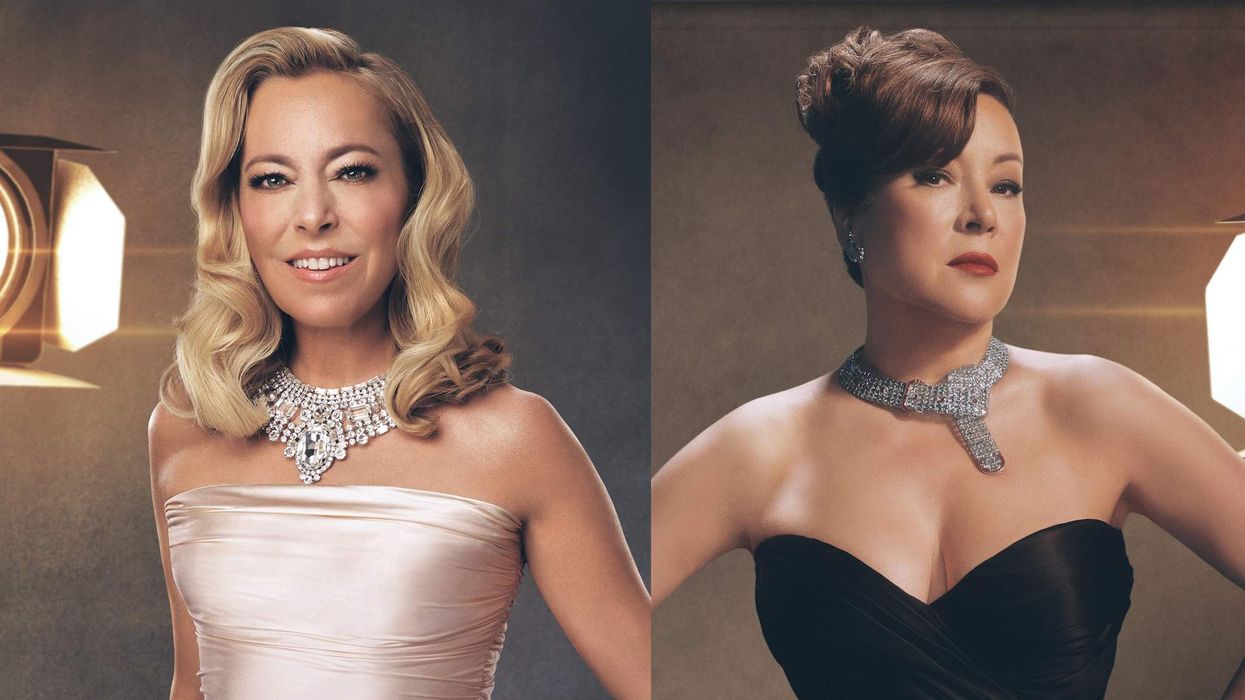
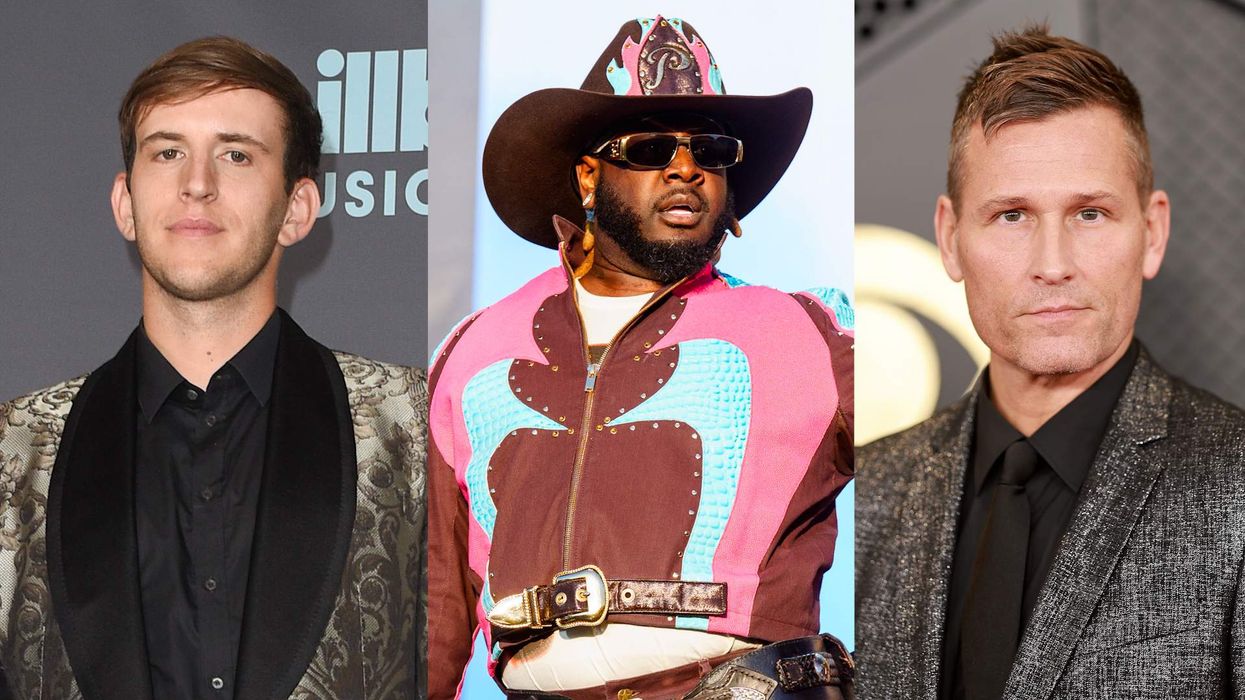


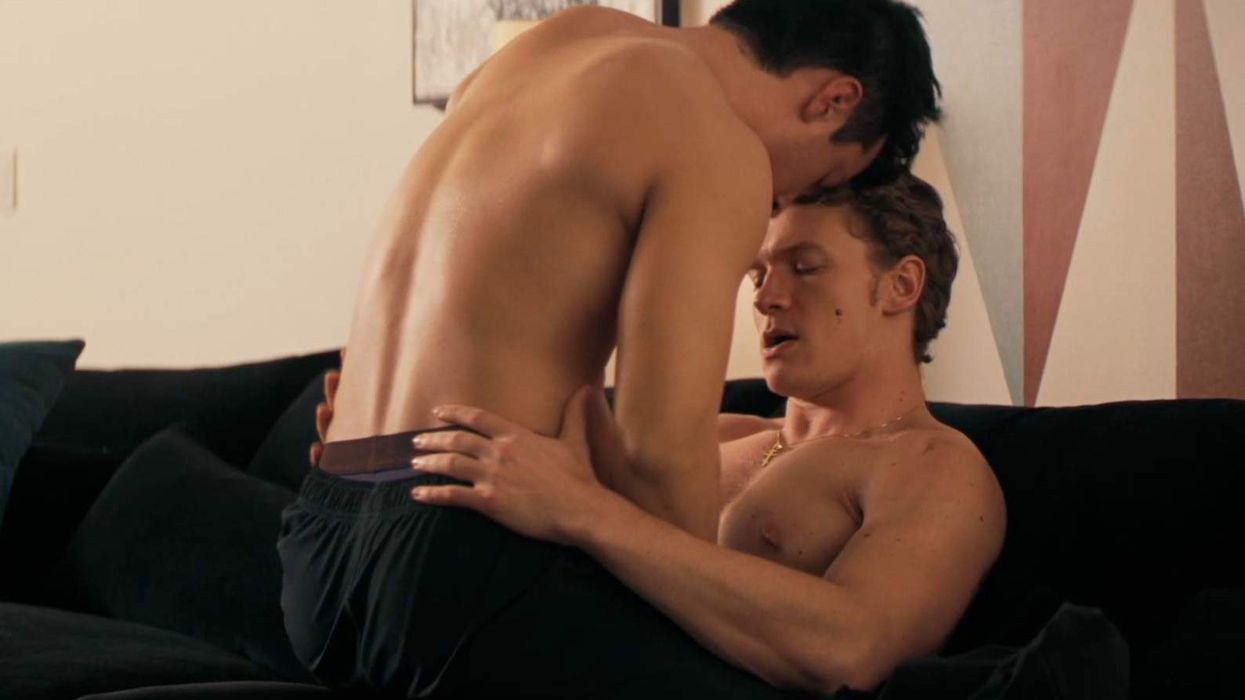
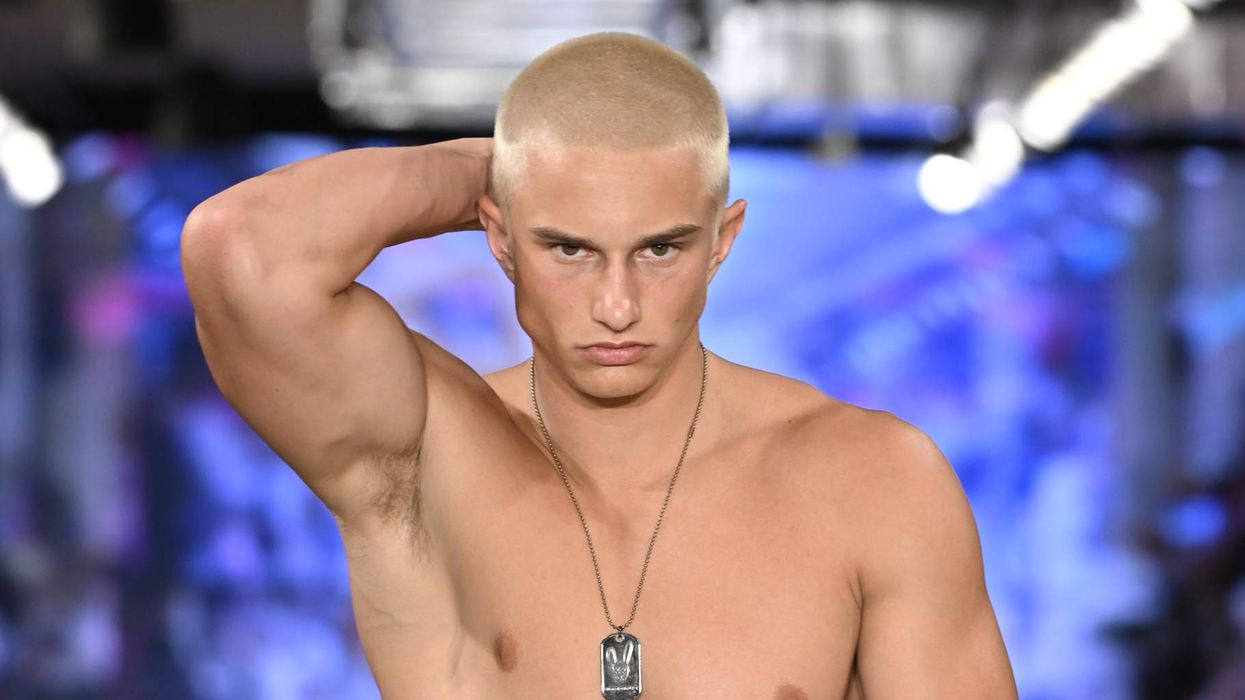




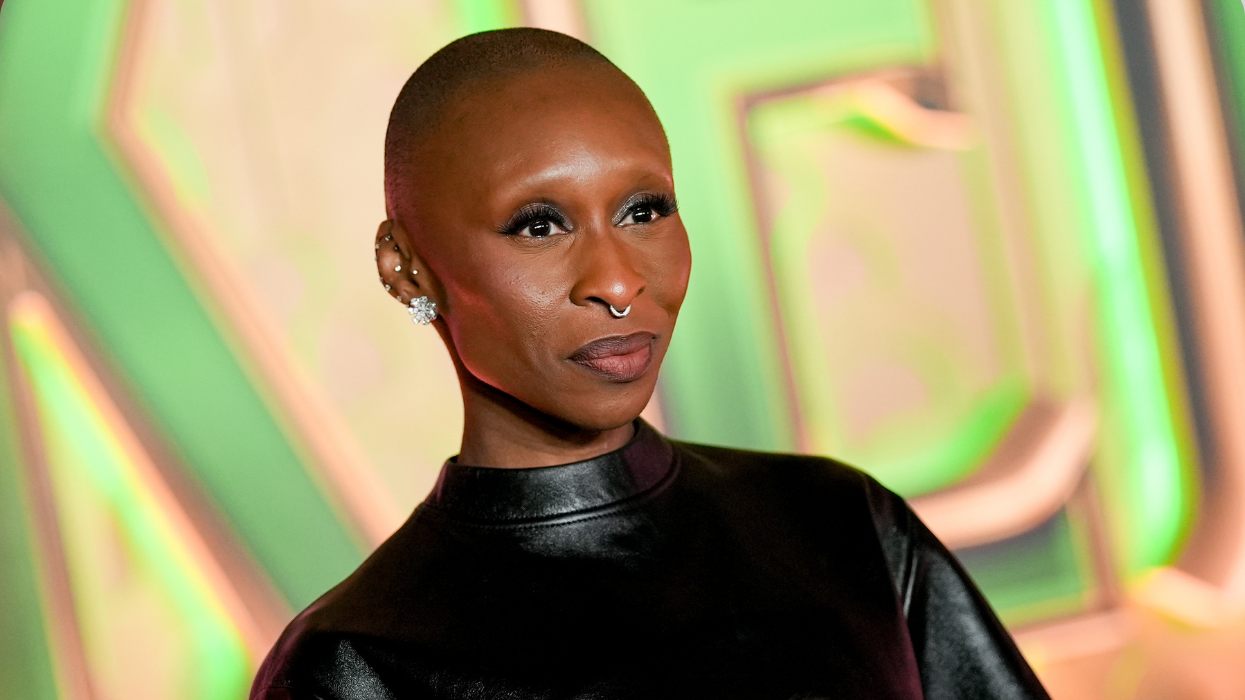
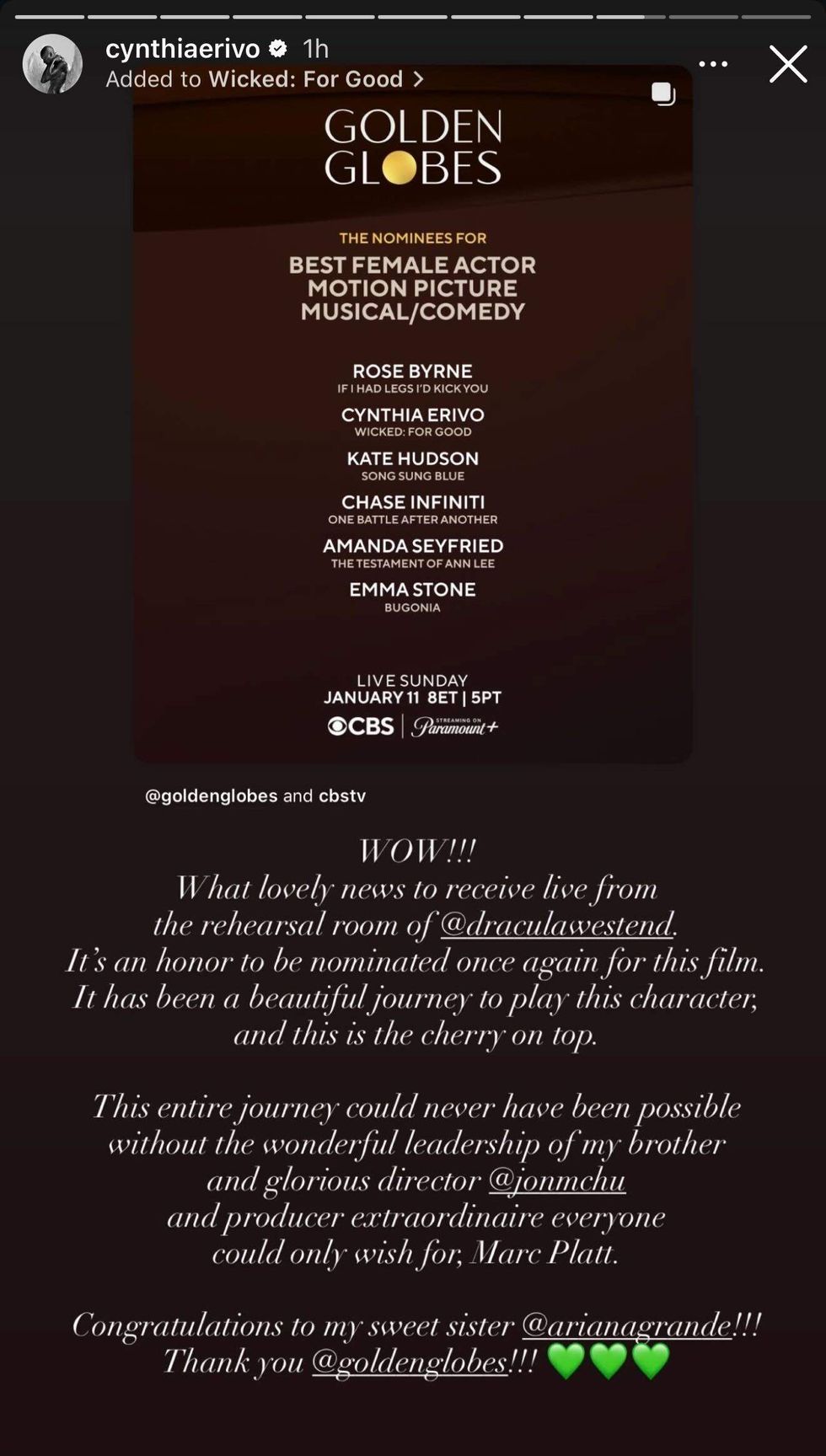 Cynthia Erivo's Instagram StoryInstagram
Cynthia Erivo's Instagram StoryInstagram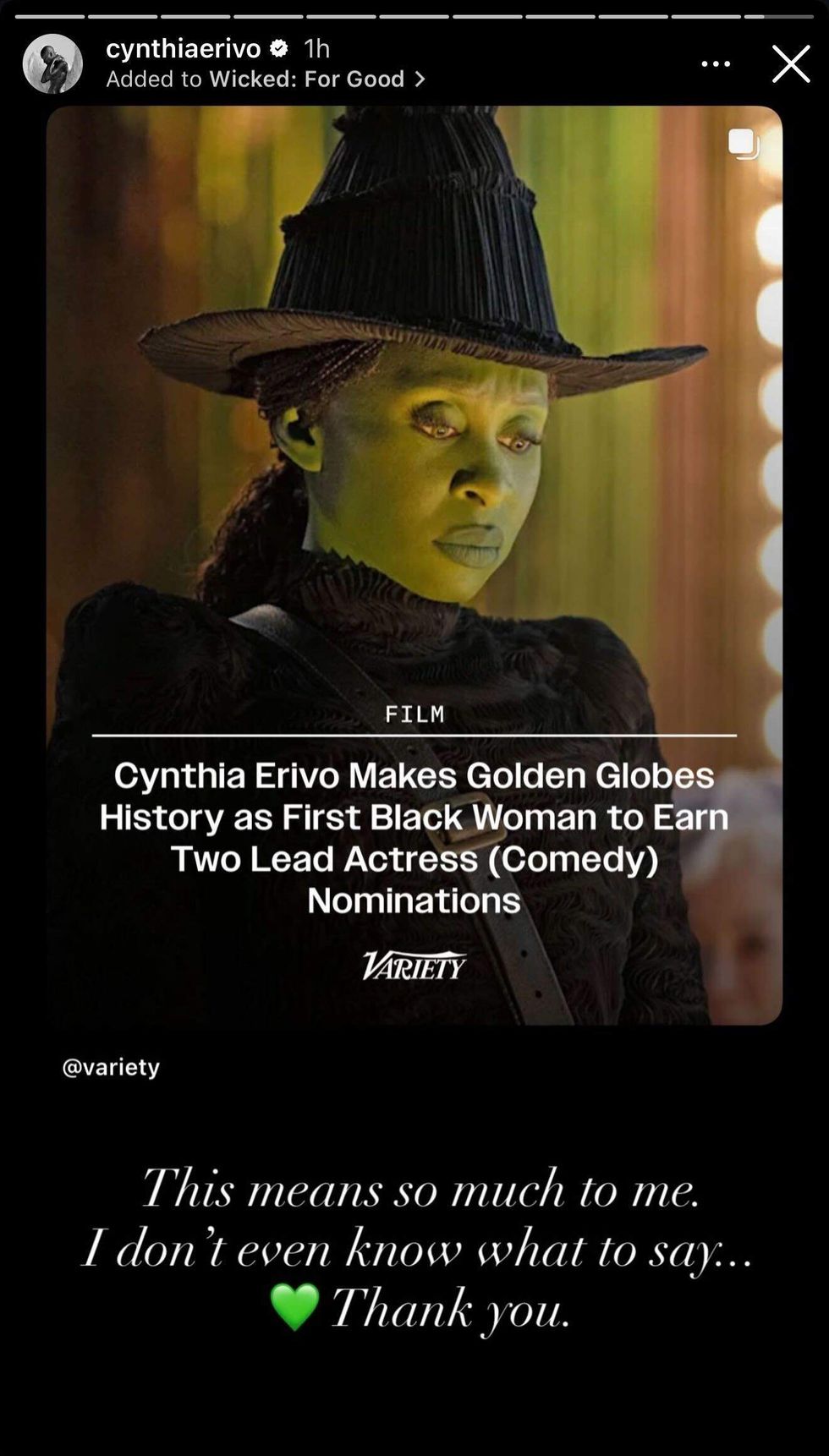 Cynthia Erivo's Instagram StoryInstagram
Cynthia Erivo's Instagram StoryInstagram

